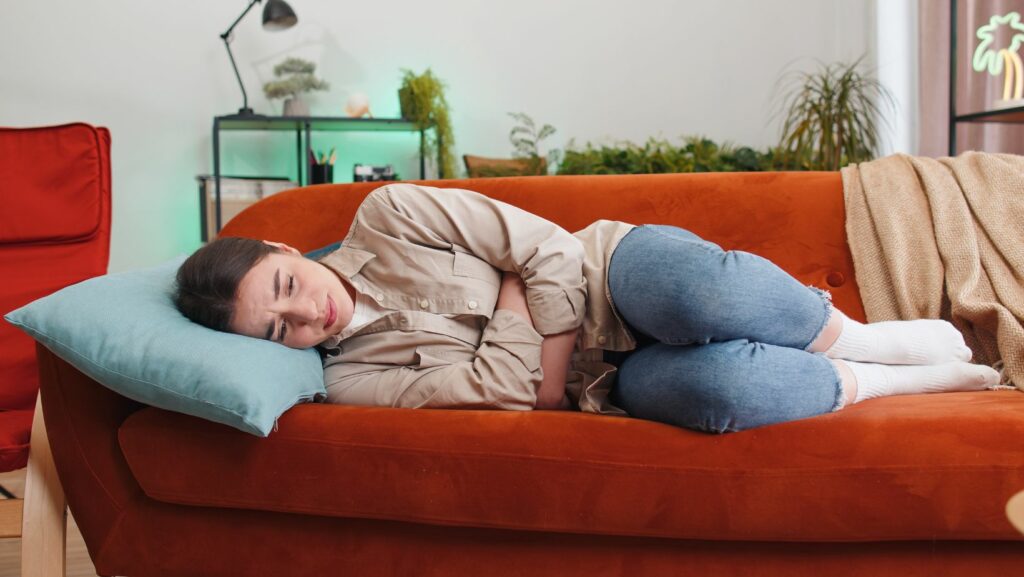Menstrual cramps can turn even the most ordinary day into a struggle. Many people experience these monthly pains, which can range from mild discomfort to debilitating agony. Understanding how to manage these cramps can make a significant difference in daily life. From natural remedies to lifestyle changes, there are numerous ways to alleviate menstrual pain. This article will explore effective tips to help manage and reduce menstrual cramps, empowering individuals to take control of their well-being. Avoid excessive caffeine and salty foods, which can worsen bloating. Quality sleep aids in pain management. Aim for 7-9 hours of sleep per night. Create a restful environment by minimizing light and noise. If pain persists or intensifies, seek professional advice. A healthcare provider can recommend specific treatments, such as hormonal birth control, which can reduce cramp severity.
Tips For Menstrual Cramps
 Increasing water intake can reduce bloating, which aggravates cramps. Aim for at least 8 cups of water daily. Herbal teas, like ginger or peppermint, offer additional benefits by providing anti-inflammatory properties. Heat relieves muscle tension and improves blood flow. Use a heating pad on the lower abdomen for 15-20 minutes. Warm baths also help relax tense muscles. Physical activity promotes blood circulation and releases endorphins, reducing pain. Gentle exercises, such as yoga or walking, are beneficial. Avoid intensive workouts if pain is severe. NSAIDs, like ibuprofen, reduce inflammation and alleviate pain. Follow dosage instructions and consult a healthcare professional if unsure about usage. Stress management can significantly reduce cramp intensity. Techniques like deep breathing, meditation, and progressive muscle relaxation help manage stress levels. Incorporate foods rich in vitamins and minerals. Leafy greens, nuts, seeds, and fish high in omega-3 fatty acids help reduce inflammation.
Increasing water intake can reduce bloating, which aggravates cramps. Aim for at least 8 cups of water daily. Herbal teas, like ginger or peppermint, offer additional benefits by providing anti-inflammatory properties. Heat relieves muscle tension and improves blood flow. Use a heating pad on the lower abdomen for 15-20 minutes. Warm baths also help relax tense muscles. Physical activity promotes blood circulation and releases endorphins, reducing pain. Gentle exercises, such as yoga or walking, are beneficial. Avoid intensive workouts if pain is severe. NSAIDs, like ibuprofen, reduce inflammation and alleviate pain. Follow dosage instructions and consult a healthcare professional if unsure about usage. Stress management can significantly reduce cramp intensity. Techniques like deep breathing, meditation, and progressive muscle relaxation help manage stress levels. Incorporate foods rich in vitamins and minerals. Leafy greens, nuts, seeds, and fish high in omega-3 fatty acids help reduce inflammation.
Tips for Managing Menstrual Cramps Naturally
Natural remedies offer effective ways to manage menstrual cramps. Consider these strategies to alleviate discomfort. Applying heat can relax muscles and reduce pain. Use a heating pad or hot water bottle on the lower abdomen. A warm bath can also provide relief. Heat increases blood flow which helps ease cramping. Staying hydrated can reduce bloating and alleviate cramps. Drink at least 8 cups of water daily. Herbal teas like chamomile and ginger offer anti-inflammatory benefits. Avoid excessive caffeine which can lead to dehydration. Diet adjustments can significantly impact cramp intensity. Consume foods rich in omega-3 fatty acids like fish and flax seeds. Magnesium-rich foods such as nuts, seeds, and leafy greens help relax muscles. Reduce intake of sugar, caffeine, and salty foods to prevent bloating and water retention. Regular physical activity promotes blood circulation and releases endorphins which reduce pain. Gentle exercises like walking, swimming, and yoga are beneficial. Stretching exercises targeting the lower back and abdominal area can alleviate tension and cramps.
relax muscles and reduce pain. Use a heating pad or hot water bottle on the lower abdomen. A warm bath can also provide relief. Heat increases blood flow which helps ease cramping. Staying hydrated can reduce bloating and alleviate cramps. Drink at least 8 cups of water daily. Herbal teas like chamomile and ginger offer anti-inflammatory benefits. Avoid excessive caffeine which can lead to dehydration. Diet adjustments can significantly impact cramp intensity. Consume foods rich in omega-3 fatty acids like fish and flax seeds. Magnesium-rich foods such as nuts, seeds, and leafy greens help relax muscles. Reduce intake of sugar, caffeine, and salty foods to prevent bloating and water retention. Regular physical activity promotes blood circulation and releases endorphins which reduce pain. Gentle exercises like walking, swimming, and yoga are beneficial. Stretching exercises targeting the lower back and abdominal area can alleviate tension and cramps.
Over-the-Counter Remedies
 Over-the-counter (OTC) remedies provide quick relief for menstrual cramps. These options alleviate pain, reduce inflammation, and improve comfort during menstruation. OTC pain relievers like NSAIDs (ibuprofen, naproxen) help manage menstrual cramps effectively. According to the American College of Obstetricians and Gynecologists, NSAIDs reduce prostaglandin levels, decreasing uterine contractions. NSAIDs are more effective when taken at the onset of cramps, and they can be taken every 4-6 hours as needed. Topical treatments like creams and patches offer localized relief for menstrual cramps. Products containing menthol or capsaicin create a warming sensation that can ease discomfort. A study published in the Journal of Obstetrics and Gynecology. Research found that a combination of menthol and methyl salicylate provided significant pain relief for participants. Applying these topical treatments directly to the lower abdomen can target pain with minimal systemic side effects. While many find relief using these tips, persistent or severe menstrual cramps might indicate underlying health issues. If pain disrupts daily activities or worsens over time, it’s crucial to consult a healthcare provider. They can offer personalized treatment options and investigate conditions like endometriosis or fibroids. Remember, managing menstrual cramps effectively enhances overall well-being and quality of life. Don’t hesitate to seek professional help when needed.
Over-the-counter (OTC) remedies provide quick relief for menstrual cramps. These options alleviate pain, reduce inflammation, and improve comfort during menstruation. OTC pain relievers like NSAIDs (ibuprofen, naproxen) help manage menstrual cramps effectively. According to the American College of Obstetricians and Gynecologists, NSAIDs reduce prostaglandin levels, decreasing uterine contractions. NSAIDs are more effective when taken at the onset of cramps, and they can be taken every 4-6 hours as needed. Topical treatments like creams and patches offer localized relief for menstrual cramps. Products containing menthol or capsaicin create a warming sensation that can ease discomfort. A study published in the Journal of Obstetrics and Gynecology. Research found that a combination of menthol and methyl salicylate provided significant pain relief for participants. Applying these topical treatments directly to the lower abdomen can target pain with minimal systemic side effects. While many find relief using these tips, persistent or severe menstrual cramps might indicate underlying health issues. If pain disrupts daily activities or worsens over time, it’s crucial to consult a healthcare provider. They can offer personalized treatment options and investigate conditions like endometriosis or fibroids. Remember, managing menstrual cramps effectively enhances overall well-being and quality of life. Don’t hesitate to seek professional help when needed.

